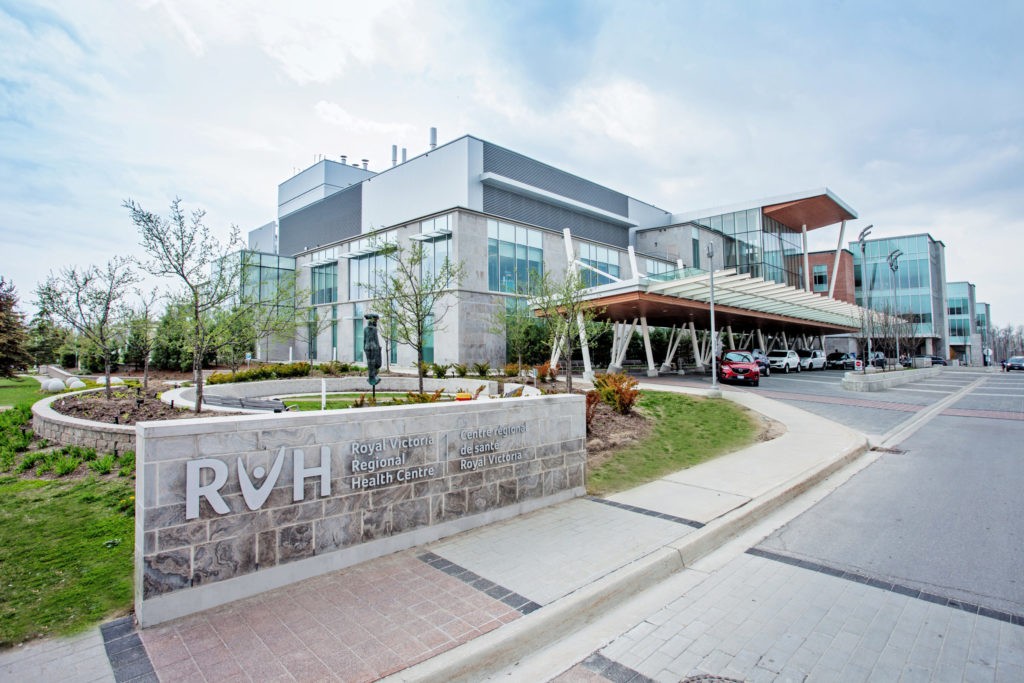Did you Know?
Hand washing/hand hygiene is one of the most effective ways to reduce the risk of transmitting infections.
Waterless alcohol – based hand rub dispensers can be found throughout the hospital.
Manager: Lisa Dufour
Phone: 705-728-9090 Ext. 44550
Email: dufourl@rvh.on.ca
Location:
Hours of Operation: 7 Days per week
7:00 a.m. – 5:00 p.m.
After hours IPAC can be contacted through the Hospital Service Leader
The Infection Prevention & Control team works closely with the rest of the health care team to ensure that patients, staff and visitors have access to information about infection prevention & control.
Every year, an estimated 5-7 percent of patients admitted to hospitals develop a hospital acquired infection. Some examples of hospital acquired infections are Clostridium difficile, MRSA and VRE. Older patients, individuals with weak immune systems and patients who have been in hospitals for a long time are vulnerable to these infections. Many hospital acquired infections are preventable with good infection control practices.
The Infection Prevention and Control team consists of practitioners, a manager and an infection prevention & control physician. The team works closely with patients, their families and staff to ensure that proper infection control practices are in place and audited.
Infection Prevention and Control provides information, education, develops policy and procedure, and does infection surveillance throughout the facility.
- Hand washing and hand hygiene
- Infection surveillance—what bugs are where and are they spreading?
- Outbreak management
- Routine Practices and Additional Precautions
- Personal Protective Equipment
- Sterilization of equipment
- Environmental Services
- Construction in the Healthcare facility
Infections are often transmitted through touch and we all play an important role in ensuring we keep ourselves and our loved ones healthy.
- Clean your hands when you enter and leave the health centre and before eating
- Use soap and water or an alcohol based hand rub
- If you’re visiting a patient who has special isolation instructions posted by the door of his/her patient room, be sure to follow the instructions completely and all the time (i.e. wearing a gown and gloves)
- Ask your doctor, nurse or other health care provider to wash or sanitize their hands before examining you. It’s your right as a patient.
- Before and after visiting a patient
- After coughing or blowing your nose
- After using the washroom
- Before eating
Patient/Visitor Information Pamphlets
The information pamphlets provided supplies general information only, and should be used as a quick guide, not a complete resource The information pamphlets provided supplies general information only, and should be used as a quick guide, not a complete resource on the subject. If you have any further questions, ask your physician, healthcare provider or contact your local health unit.
Downloadable PDFs
- Additional Precautions Patient Pamphlet
- Carapenemase Producing Enterobacteriaceae (CPE) Patient Pamphlet
- Clostridium Difficile (C Diff) Patient Pamphlet
- Hand Hygiene Patient Pamphlet
- Influenza Patient Pamphlet
- Methicillin Resistant Staphylococcus aureus (MRSA) Patient Pamphlet
- Vancomycin Resistant Enterococci (VRE) Patient Pamphlet
Resources
- Association for Professionals in Infection Control and Epidemiology
- Centres for Disease Control and Prevention
- Infection Prevention and Control Canada
Video Resources
To learn more about RVH recommended infection prevention and control methods, hand hygiene and routine practices, please follow the links below to view the videos.

